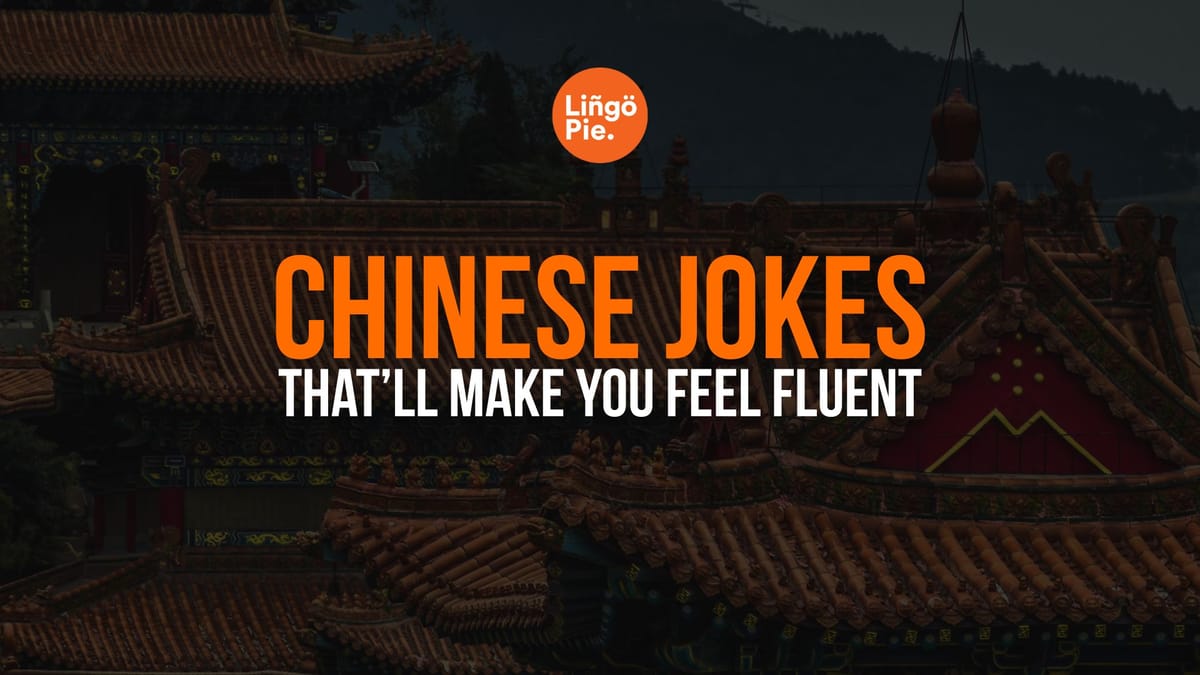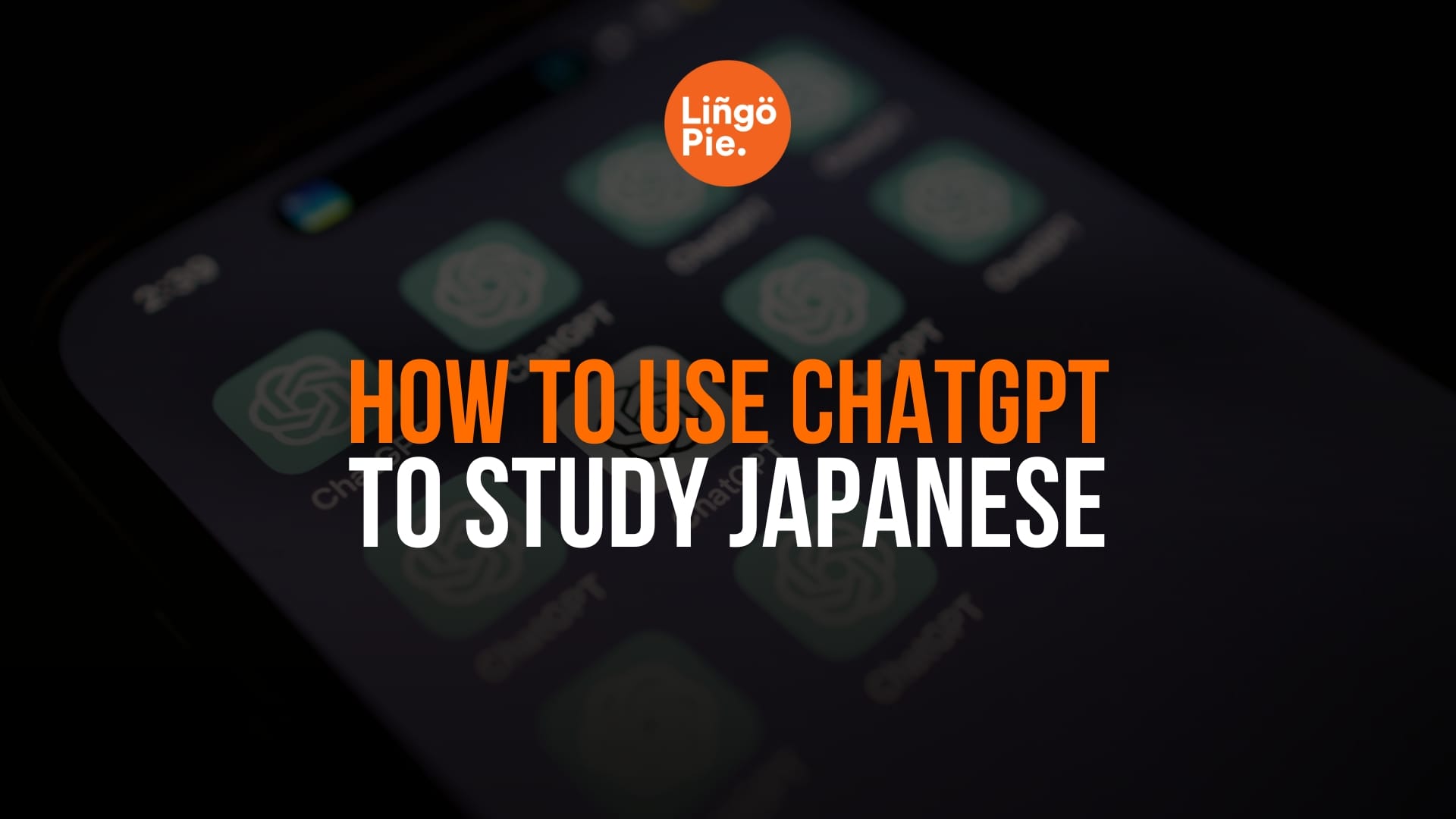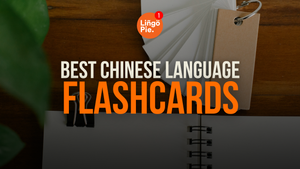Have you ever tried to tell a joke in another language, only to be met with blank stares? Or worse—polite smiles that scream "I have no idea what you just said"?
I've been there. The day I finally understood a Chinese joke without having it explained to me was the day I realized I was actually getting somewhere with my language skills. I mean, humor is the final frontier of language learning. If you're naturally laughing along, then you've developed a high level of proficiency in that language.
In this post, I'll share with you some of the Chinese jokes that marked my own fluency journey. I'll break down exactly why each joke is funny through the lens of Chinese language and culture. If you stick around, you'll also get to know how to train your ears to the Chinese language through Lingopie.
- 70+ Common Chinese Last Names And Their Meanings
- 60 Chinese Slang You'll Find on Xiaohongshu
- 8+ Chinese Curse Words And Meanings Explained

What Are "Jokes" in Chinese?
In Chinese, a joke is called "笑话" (xiàohuà), which literally combines "laugh" (笑, xiào) and "words/speech" (话, huà) to mean "words that make you laugh." Unlike English, Chinese doesn't use plurals with counters, so "jokes" would simply be "笑话" or with a number like "三个笑话" (sān gè xiàohuà, three jokes).
Chinese also has specific terms for different types of humor, like "冷笑话" (lěng xiàohuà, cold jokes) for puns and dad jokes, or "段子" (duànzi) for short, witty anecdotes.
For foreigners learning Chinese, jokes are not only acceptable but encouraged as a learning tool. Chinese people typically appreciate foreigners who understand their humor, viewing it as a sign of deeper cultural integration beyond mere language ability. However, it's worth noting that Chinese humor tends to be less sarcastic than Western humor and rarely touches on politically sensitive topics.
Easy Chinese Jokes For Beginners
The Hungry Nightmare
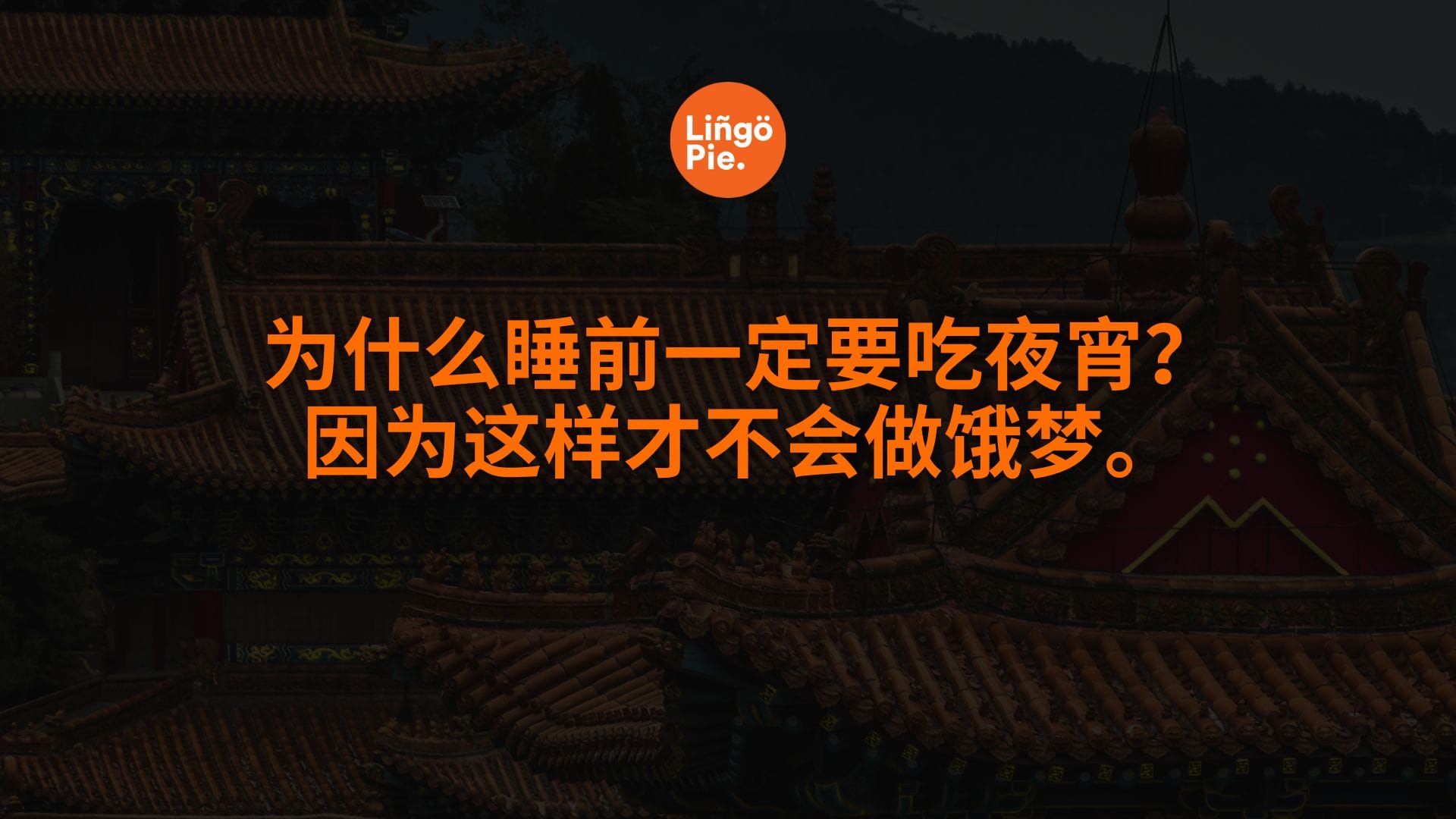
为什么睡前一定要吃夜宵? 因为这样才不会做饿梦。
Wèishénme shuì qián yīdìng yào chī yèxiāo? Yīnwèi zhèyàng cái bú huì zuò è mèng.
This joke plays on a pun between two Chinese phrases:
- 饿梦 (è mèng): Literally translates to "hungry dream."
- 噩梦 (è mèng): Means "nightmare."
Both phrases are pronounced identically in Mandarin (è mèng), but they have different meanings. In the joke, the person suggests eating a late-night snack to avoid "饿梦" (hungry dreams), but the pun implies avoiding "噩梦" (nightmares). It's a light-hearted way to justify a midnight snack by suggesting it prevents bad dreams.
The Cunning Fox
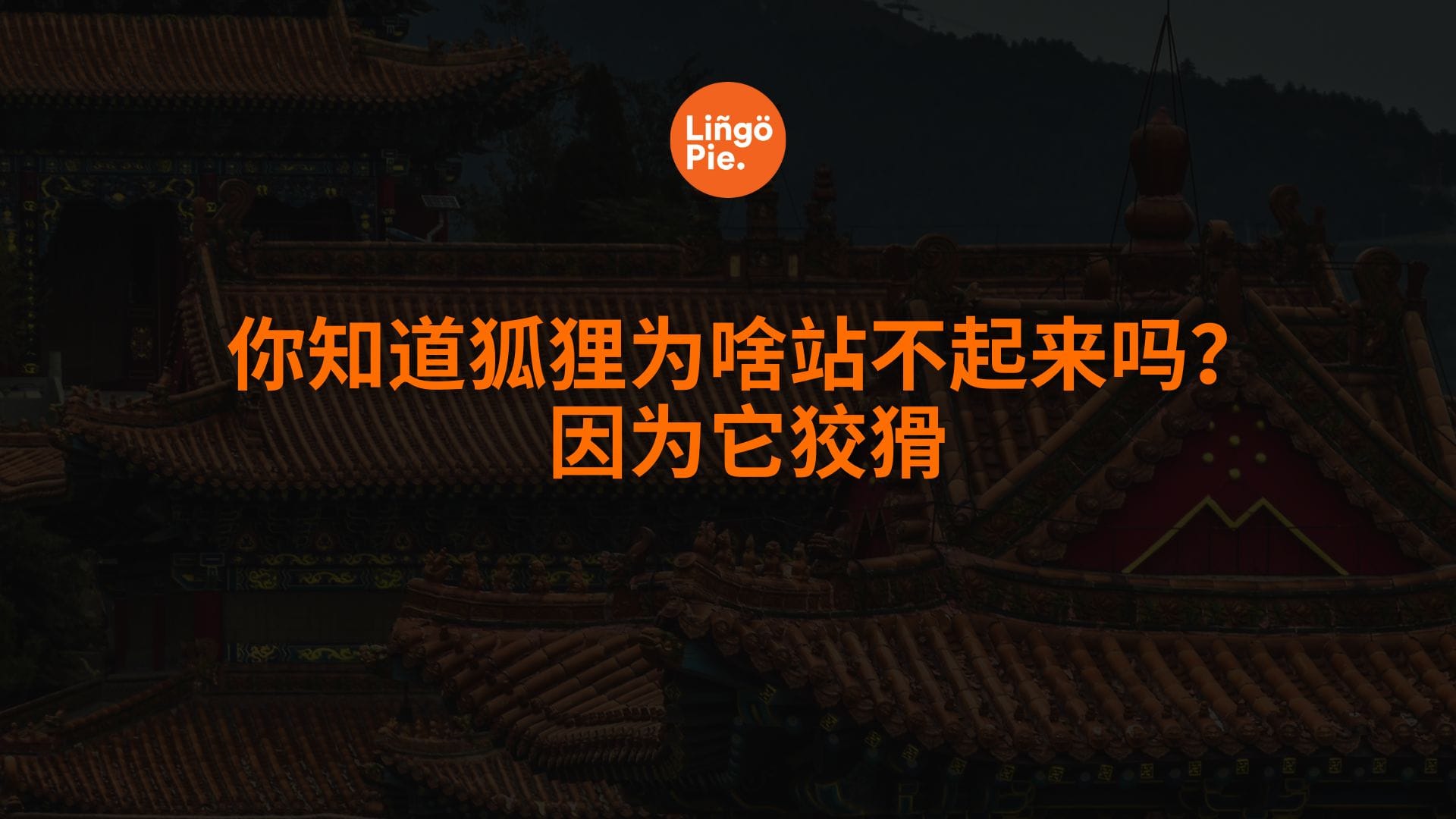
你知道狐狸为啥站不起来吗?因为它狡猾。
Nǐ zhīdào húlí wèishá zhàn bù qǐlái ma? Yīnwèi tā jiǎohuá.
This joke relies on the similar pronunciation between:
- 狡猾 (jiǎohuá): Means "cunning" or "sly" - a traditional characteristic of foxes in Chinese culture.
- 脚滑 (jiǎo huá): Means "slippery feet."
The joke asks why the fox can't stand up, setting us up to expect a physical reason. But instead of saying the fox has slippery feet (脚滑), it uses the word for cunning (狡猾), creating an unexpected punchline that only works because of the sound similarity in Chinese.
The Banana Cold Joke
香蕉对冰箱说:"你的皮肤怎么这么白?"
Xiāngjiāo duì bīngxiāng shuō: "Nǐ de pífū zěnme zhème bái?"
This is what's known as a "cold joke" (冷笑话, lěng xiàohuà) in Chinese—jokes that are deliberately nonsensical or illogical and are often delivered dryly.
- A banana asks a refrigerator why its skin is so white
- The humor comes from the utter absurdity—bananas don't speak, refrigerators don't have skin
- Yet there's a literal comparison being made between a banana's yellow peel and a refrigerator's white surface
This type of humor is especially popular among young Chinese people as a form of anti-humor that embraces randomness and subverts expectations of what makes something funny.
The Flower With a Stem
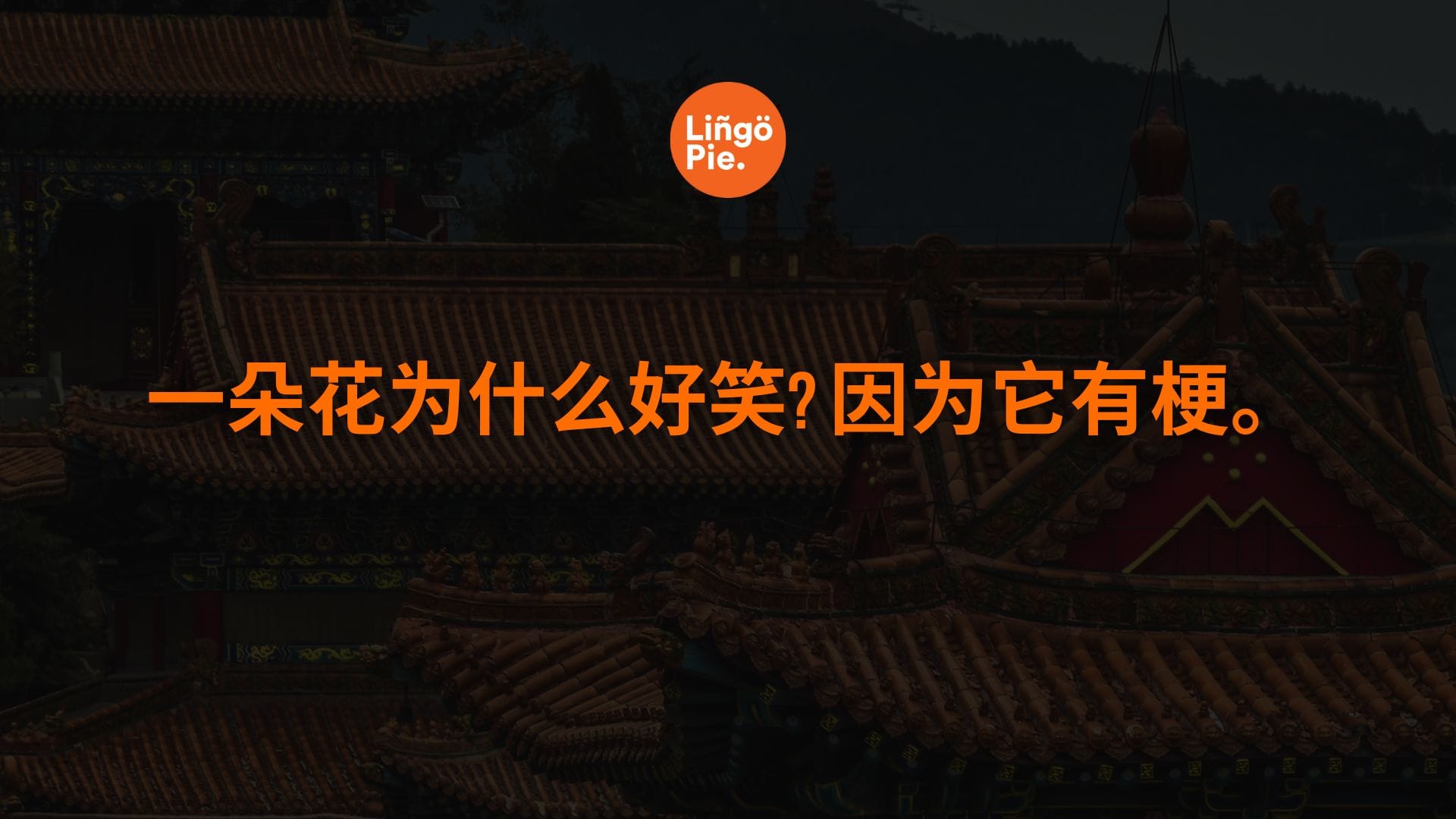
一朵花为什么好笑? 因为它有梗。
Yī duǒ huā wèishénme hǎoxiào? Yīnwèi tā yǒu gěng.
This is a clever pun based on Chinese internet slang:
- 梗 (gěng): Originally just means "stem" of a plant.
- In modern Chinese internet slang, 梗 (gěng) has taken on a new meaning: "joke" or "meme."
So when the joke asks "Why is a flower funny?" and answers "Because it has a 梗 (stem)," it's actually saying "Because it has a joke/meme." It would be like if in English "stalk" also meant "joke" so you could say "the flower is funny because it has a stalk/joke."
The Non-Directional Shopper
人们都说我没有方向感,我一直不承认,直到他们让我买西瓜我买成了南瓜后。
Rénmen dōu shuō wǒ méiyǒu fāngxiàng gǎn, wǒ yìzhí bù chéngrèn, zhídào tāmen ràng wǒ mǎi xīguā wǒ mǎi chéng le nánguā hòu.
The joke suggests the person has such poor directional sense that they went south instead of west when shopping for fruit. This humor only works in Chinese because the directional confusion wouldn't make sense in languages where fruit names don't contain cardinal directions.
- 西瓜 (xīguā): Watermelon, literally "west melon."
- 南瓜 (nánguā): Pumpkin, literally "south melon."
The Money and Tears Connection
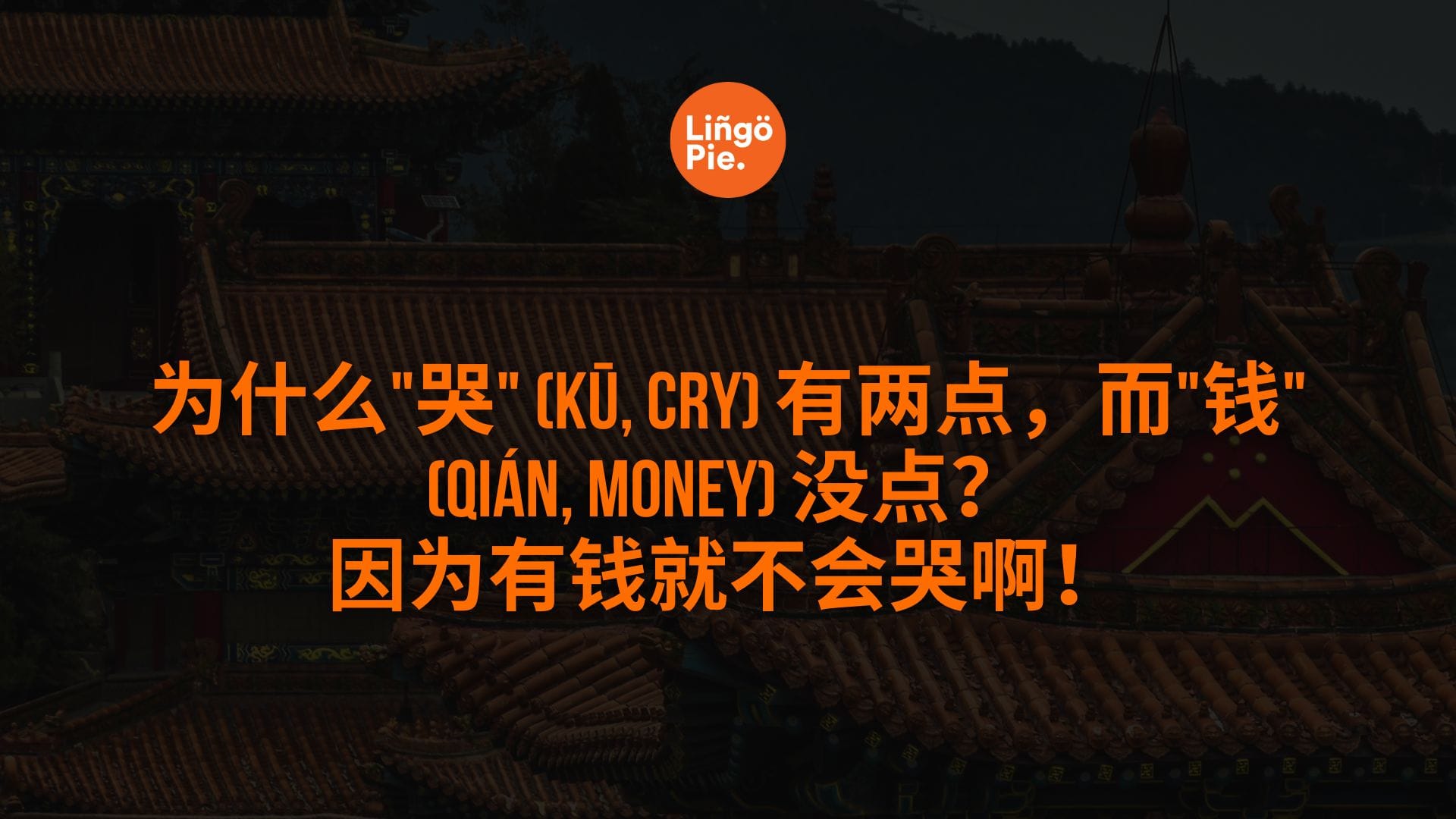
为什么"哭" (kū, cry) 有两点,而"钱" (qián, money) 没点?因为有钱就不会哭啊!
Wèishénme "kū" yǒu liǎng diǎn, ér "qián" méi diǎn? Yīnwèi yǒu qián jiù bù huì kū a!
This joke is about the visual elements of Chinese characters:
- 哭 (kū): The character for "cry" has two dots (丶) above the mouth radical (口).
- 钱 (qián): The character for "money" doesn't have these dots.
The joke explains this difference by suggesting that if you have money (钱), you won't cry (哭), so the "money" character doesn't need "tears" (the dots). It's a clever visual pun that only works in written Chinese and offers social commentary on materialism.
The Spider-Man Joke
蜘蛛人为什么总是失败的?因为他总是四脚朝天。
Zhīzhū rén wèishénme zǒngshì shībài de? Yīnwèi tā zǒngshì sì jiǎo cháo tiān.
The joke creates humor by connecting Spider-Man's name with the sound of "failing" in Chinese, then using a traditional Chinese idiom to describe his supposed failure.
- 蜘蛛人 (zhīzhū rén): The Chinese name for Spider-Man.
- 失败的 (shībài de): Means "failing" or "a loser," but sounds similar to "spider" when pronounced with a Chinese accent.
- 四脚朝天 (sì jiǎo cháo tiān): A Chinese idiom meaning "four legs pointing to the sky," describing someone who has fallen on their back—a metaphorical way of saying someone has failed.
The Starbucks Weight Joke
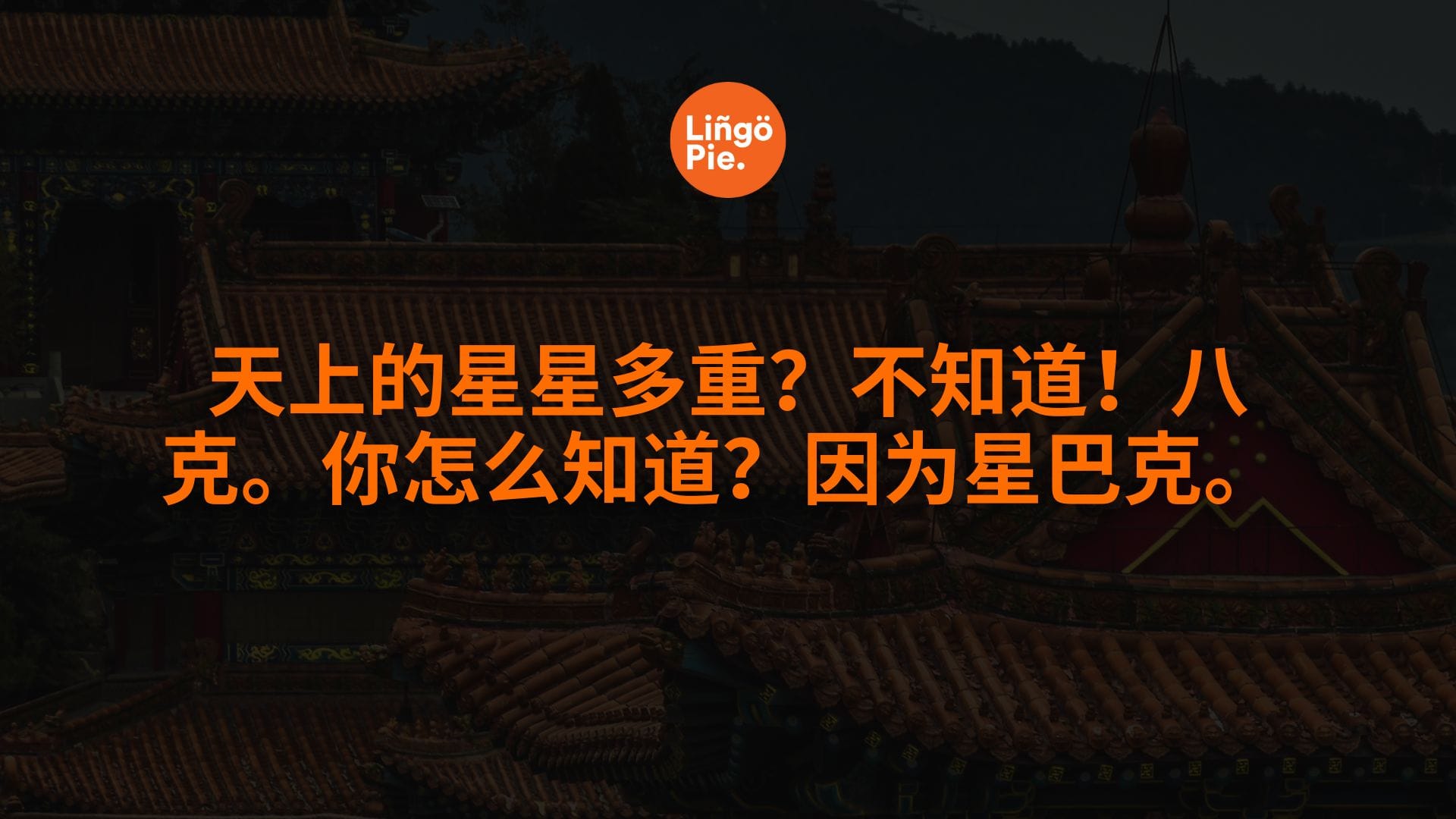
天上的星星多重?不知道!八克。你怎么知道?因为星巴克。
Tiān shàng de xīngxīng duō zhòng? Bù zhīdào! Bā kè. Nǐ zěnme zhīdào? Yīnwèi xīngbākè.
This joke plays on the Chinese name for Starbucks. Basically, it suggests that stars weigh eight grams based on breaking down the coffee chain's name.
- 星巴克 (xīngbākè): The Chinese name for Starbucks.
- 星 (xīng): Means "star."
- 八克 (bā kè): Sounds like "bucks" but literally means "eight grams."
The Emotional Eating Pun
为什么心情不好的时候总会想吃东西?因为伤心欲嚼。
Wèishénme xīnqíng bù hǎo de shíhou zǒng huì xiǎng chī dōngxi? Yīnwèi shāngxīn yù jiáo.
The two phrases sound almost identical except for the final character. By replacing the original "jué" (绝, extreme) with "jiáo" (嚼, chew), the joke creates a clever explanation for emotional eating that only works in Chinese phonetics. It transforms a serious literary expression into something relatable and humorous.
- 伤心欲嚼 (shāngxīn yù jiáo): A phrase created for this joke, meaning "sadness makes us want to chew."
- 伤心欲绝 (shāngxīn yù jué): A common Chinese expression meaning "heartbroken" or "extremely sad."
- 6 Best Chinese Dramas On Netflix Every Fan Should See
- 6 Chinese Short Films Everyone Learning Chinese Should Watch
- 7 Romantic Chinese Shows You Need To Watch With Your Partner
How These Chinese Jokes Can Measure Your Chinese Fluency Level
Each joke represents a distinct level of language mastery, testing not just vocabulary but your grasp of cultural context, linguistic nuances, and social implications.
When you can laugh at a Chinese joke—genuinely laugh, not just politely smile—it indicates:
- You're processing meaning directly rather than translating
- Your brain is making connections between language, culture, and context
- You're thinking in patterns native to the Chinese language
Understanding these jokes can be more valuable than formal assessments in measuring true Chinese fluency. They mark the critical transition from knowing Chinese to feeling Chinese.
Ready To Have Some Fun?
If fun is an important element in your language learning journey, then you'll love Lingopie! Lingopie is the Sreaming platform of language learning, offering thousands of hours of authentic Chinese movies, TV shows, and dramas with interactive dual subtitles.
Instead of struggling through textbooks, you can laugh along with Chinese TV, follow gripping dramas, and naturally absorb the language patterns that make jokes like these make sense. And with advanced learning features, you can practice and test yourself in Chinese anytime!
Want to give it Lingopie a try? Click below to get your free 7-day trial!


